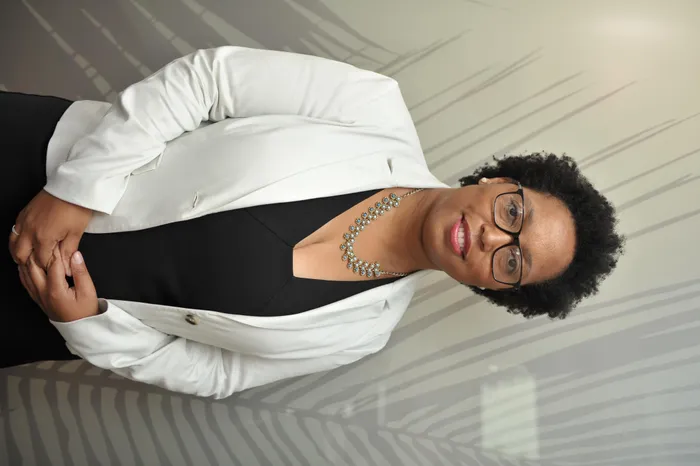Going beyond the code, investing in Girls in ICT is a future investment
TECH

Despite strides in awareness, the numbers remain sobering, with 30% of science and ICT professionals are woman, globally.
Image: Supplied.
This past Friday, the world marked Girls in ICT Day which brought up the critical question in the industry, are we doing enough to ensure that girls are not only included in the digital future, but leading it?
A woman in tech and a director at Bizmod Consulting, a proudly women-led company, Jessica Nyarayi Tandy said she sees this day not as a checkbox on the advocacy calendar but as a strategic moment to recommit to what truly matters: intentionally building a future where girls are not simply included in ICT, but are leading it.
Despite strides in awareness, the numbers remain sobering, with 30% of science and ICT professionals are woman, globally.

A woman in tech and a director at Bizmod Consulting, a proudly women-led company, Jessica Nyarayi Tandy.
Image: Supplied.
Less than 3% of female students in higher education pursue ICT courses and in Sub-Saharan Africa, women make up 24% of STEM professionals.
Closer to home, in South Africa, girls outperform boys in matric pass rates, but too few continue into ICT fields.
“These figures reflect more than a pipeline problem. They point to systemic barriers, lack of representation, and a gendered digital divide that still holds our girls back,” Tandy said.
She added that having worked across digital transformation, enterprise systems, data privacy, and change management, in every boardroom and every implementation cycle, one thing is clear: the tech industry is desperately short of skilled professionals, and even shorter on diversity.
“Girls in ICT shouldn’t be seen as a CSI initiative; it’s a business imperative. That’s why investing in the next generation of ICT leaders, especially young women, is not only about fairness. It’s about future-proofing our industry and our society,” Tandy said.
- Diverse teams outperform homogeneous ones in innovation and decision-making.
- Digital skills provide economic mobility and access to global opportunities.
- Girls and women bring lived experience and perspective that lead to more inclusive tech solutions.
Tandy reflected on her recent address to the students at Letsibogo Girls High School in Soweto, a Maths, Science, and ICT School of Specialisation focused on Media and Communication.
“I was humbled and inspired. The passion, curiosity, and creativity of the learners were a vivid reminder of what’s possible when we give girls access to the right tools and platforms.”
In her address, she shared the following reflections: "You will be learning skills like coding, AI, data analytics, and graphic design, skills that matter in today’s digital world. But equally important are the human skills, empathy, communication, ethics. These are the things that differentiate us from machines and make innovation meaningful."
“I reminded the students, and continue to remind every organisation I speak to, that technology is a tool, not a destination. It’s not about lines of code or hardware alone. It’s about solving problems, building equitable futures, and staying rooted in humanity,” she said.
Bizmod, the company that Tandy is a director at, encouraged the learners at Letsibogo and beyond to embrace interdisciplinary learning, to think about the end-user in every tech solution, and to use their talents not only to get ahead, but to lift others as they rise.
Tandy said the transformation requires a multi-pronged approach:
- In schools: Embed coding, robotics, and critical thinking in early education, especially in girl-focused schools.
- In industry: Create internships, mentorships, and leadership pipelines that explicitly support girls.
- In policy: Encourage gender-equitable funding, scholarships, and representation in ICT curricula.
- In community: Change the narrative around what girls in tech look like, and what they can achieve.
“Most importantly, we need to normalise non-linear paths to success. Success is not defined solely by grades or accolades. It’s about impact. About using your knowledge to make a meaningful difference in the world around you,” Tandy said.
BUSINESS REPORT
